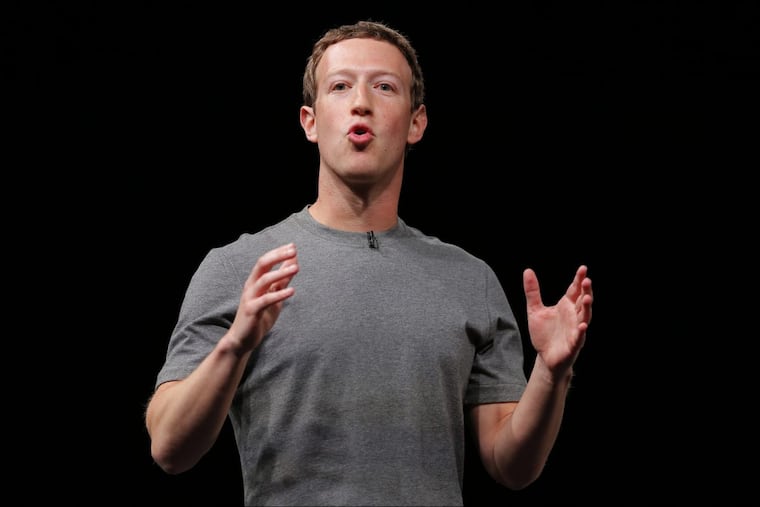Lots of dislikes for Facebook after data mining disaster | Editorial
Facebook needs to come clean about what it does with users' data and be held accountable for any wrongdoing.

The misappropriation of data from 50 million Facebook users to help sway voters during the 2016 election is just the latest reminder of the enormous — and often troubling — power of social media.
Facebook needs to come clean about what it does with users' data and be held accountable for any wrongdoing. Facebook founder and CEO Mark Zuckerberg, 33, admitted mistakes and promised to do a better job protecting users' data.
But Facebook can't be trusted to investigate itself or take the necessary steps to protect the valuable data of its 2.2 billion users, which underpins its advertising-based business model. So, it's good news that Pennsylvania Attorney General Josh Shapiro and 36 attorneys general across the country are expected to issue a demand letter to Facebook and Zuckerberg on Monday. The letter is expected to question Facebook's terms of service with users, its arrangements with and monitoring of third parties, and how data from users is monitored.
Zuckerberg, who says he's "open" to testifying before Congress, should answer to lawmakers about what he knows about Facebook's disclosure policies, data security efforts, and how he will prevent future misuse of personal information.
Facebook's track record on privacy and policing its network is mixed, at best. Facebook failed to police its network from false and misleading news that helped influence voters during the 2016 presidential election.
An analysis by BuzzFeed found that 38 percent of political posts shared on hyperpartisan conservative Facebook pages included false or misleading information. Three hyperpartisan liberal pages did the same thing 19 percent of the time. This is a serious concern because 66 percent of Facebook users get their news from the site, according to a report by the Pew Research Center and the Knight Foundation.
It took months before Facebook admitted that Russian actors bought political ads on its site, which may have violated U.S. law. Zuckerberg initially said the idea that misinformation spread on Facebook influenced the election was "crazy."
However, it has now been reported that Cambridge Analytica, a company founded by former Trump White House chief strategist Steve Bannon and conservative billionaire Robert Mercer, used ill-gotten data from tens of millions of Facebook accounts to create algorithms aimed at influencing voters. That data was provided unknowingly by people who innocently clicked on a personality quiz.
Articles in the London Observer and New York Times reporting Facebook's handling of personal data have done little to instill confidence that Zuckerberg's company is on top of the matter. Facebook initially threatened to sue the Observer to stop it from publishing a story detailing how Cambridge Analytica accessed its data. Facebook later expressed alarm at the data misuse, and then suspended the account of a whistleblower at Cambridge Analytica.
Only after Facebook's stock plummeted, and a movement grew urging users to cancel their accounts, did Zuckerberg issue an apology, of sorts. He also acknowledged that Facebook may need to be regulated.
Fixing Facebook will not be easy. The social media network has been accused of undermining the news industry and fueling America's partisan echo chamber.
In the end, users must decide whether the many downsides of social media are worth the likes.